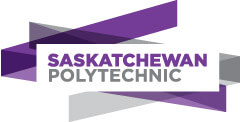About Chemical Technology Diploma in Saskatchewan Polytechnic
Program Overview
Are you good at math and science? If you’re looking for a program that takes advantage of your strengths and can launch you into a good career in just two years, check out the Chemical Technology program at Saskatchewan Polytechnic.
Chemical technologists are involved in quality control testing, environmental analysis, product R&D and more. You could work in a variety of settings—industrial plants to commercial and government labs. The mining and resource sectors are big employers, but you’ll also find opportunities in agriculture, food and manufacturing.
Chemical Technology is a nationally accredited, two-year diploma program offered through Saskatchewan Polytechnic, Saskatoon Campus, Idylwyld Dr. You’ll get a well-rounded foundation in scientific principles and analytic practices—essential building blocks for a flexible career. You’ll build knowledge and skills in:
- analytical instrumentation
- basic, organic, physical, analytical and environmental chemistry
- handling and manipulating chemicals
- laboratory quality control and assurance
- recording, processing and reporting data
Learning is hands-on—you’ll spend almost as much time in labs as in the classroom. And you’ll apply what you’ve learned during a four-week industry research project.
Diploma to a Degree
Turn your Chemical Technology diploma into a university degree in just two years. Saskatchewan Polytechnic has transfer agreements with the University of Regina and University of Saskatchewan. You can also transfer into programs at Athabasca University (Alberta), Memorial University (Newfoundland) and Royal Roads University (B.C.). Use your diploma to ladder into a mining engineering technology degree at Queen’s University in Ontario.
Learning Environment
- 24 students are accepted each year
- Students will experience lectures and laboratory classes, as well as tours of relevant industrial laboratories
- Class hours are from 8 am – 4 pm daily. If desired students can take part time studies and complete the program over 3 years
- Homework is required outside of scheduled class time
High Employment Rate
Because the program is designed with input from industry, your education matches real-world needs. And that’s why Saskatchewan Polytechnic Science graduates are so highly sought after by employers. A recent survey shows that six months after graduation, 9 out of 10 Chemical Technology graduates are employed in a training-related field.
Your Career
Chemical technologists can choose from a variety of job possibilities. Saskatchewan Polytechnic graduates are working as laboratory analysts, laboratory technologists, research technical assistants and sales managers.
The mining industry is a major employer, particularly potash and uranium mining companies, but also many smaller exploration companies and agriculture, oil and gas, chemical production, environmental protection, ethanol production, food research and occupational health industries. Look for jobs in commercial, industrial or government laboratories, or for positions in chemical product sales.
Academic qualification equivalents:
- Grade 12 with a minimum 60% in each of the following subjects: English Language Arts A30, English Language Arts B30, Chemistry 30 and Pre-Calculus 30
English language requirements (one of the below):
- IELTS : Overall minimum score of Band 6.5 with a minimum score of 5.0 in each component.
- TOEFL : An overall minimum score of 81 on the Internet-based Test of English
- PTE : A minimum score of 63 with minimum component scores of 50.
Saskatchewan Polytechnic Highlights
| Type |
Public |
| Campus Setting |
Urban |
| Application mode |
Online and Paper mode available |
| Graduation rate |
62% |
| Acceptance rate |
96% |
| Number of Students |
16,008 |
| Overall cost of living |
14,762 CAD |
| Academic calendar |
Semester based |
| % of International students |
6% |
| Number of campuses |
4 |
| Medium of instructions |
English |
| Undergraduate Tuition fee |
14,044 CAD |
| Postgraduate Tuition fee |
16,426 CAD |
| Cost of living |
694 -1147 CAD per month |
Saskatchewan Polytechnic First-Year Tuition Fees And Living Expenses For International Students
Over the course of one academic year, the following graph displays tuition and living expense estimates in Canadian currency for one full-time international undergraduate student. Please bear in mind that these are only estimates; actual pricing will vary depending on your needs and preferences. Other factors to consider include currency changes, visa and study authorization fees, and vacations back home.
- For international students, the overall fees will range from:-
| Particulars |
Amount |
| Administrative fees |
50.00 to 150.00 CAD |
| Application fees |
150 CAD |
| Student association fee |
95.00 to 445.00 CAD |
| Non-refundable fee at the start) |
1,000 CAD |
| Tuition fee range |
6,195 to 18,089 CAD |
| Laboratory fee |
100.00 to 409.00 CAD with no fees for
some courses which do not have a lab service. |
| Books and Supplies |
200 to 3,725 CAD |
| Technology fee |
50 to 146 CAD |
- For a student of Saskatchewan Polytechnic the required financials (Cost of Attendance) can be:-
| Description of Financials |
Amount in CAD |
| Average cost of tuition |
11245.77 CAD |
| Cost of living |
10799.39 CAD |
| Application fee |
150 CAD |
| Estimated total (per year) |
22,195.16 CAD |
